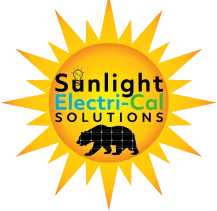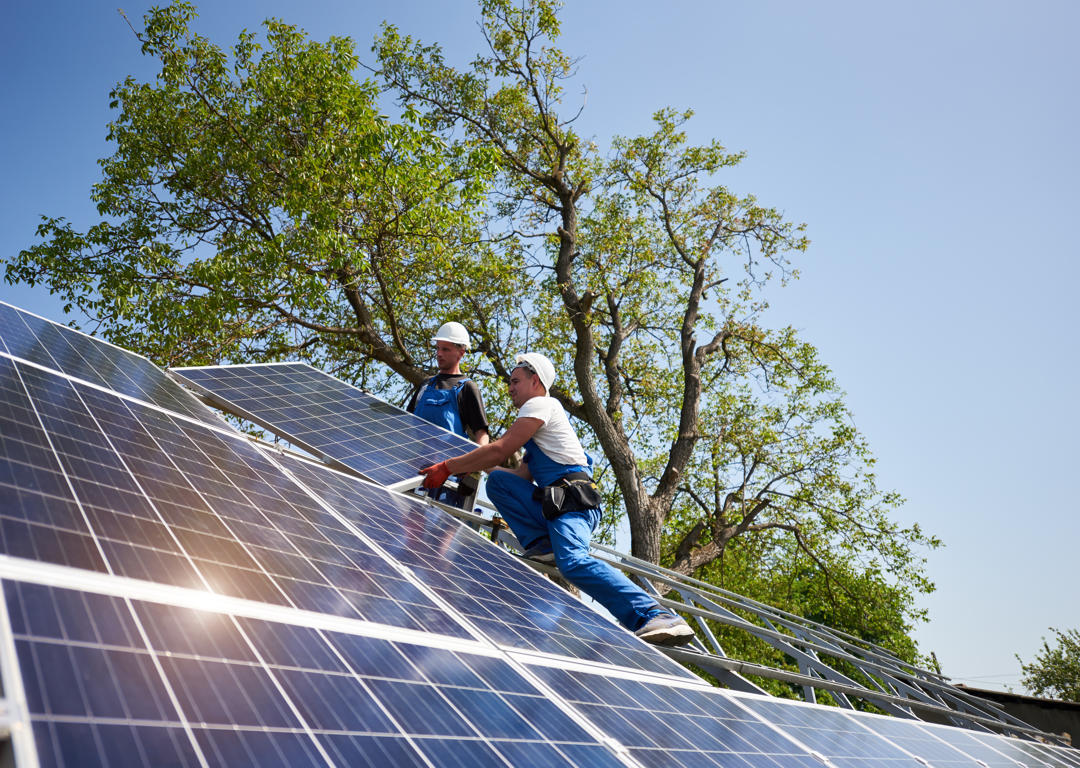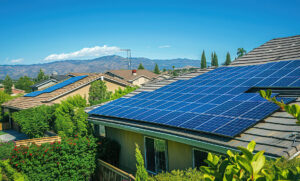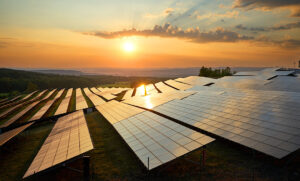Investing in solar panels is becoming increasingly popular due to the dual benefits they offer significant financial savings and substantial environmental advantages. This article will delve into the financial and environmental benefits of solar panels, shedding light on why they are a prudent investment for homeowners and businesses alike in Dublin, CA, and the surrounding East Bay Area.
Financial Benefits of Solar Panels
Cost Savings on Energy Bills
One of the most compelling reasons to invest in solar panels is the potential for substantial savings on energy bills. Solar panels harness energy from the sun, which is free and abundant. Once installed, they can significantly reduce or even eliminate electricity bills. According to the Solar Energy Industries Association (SEIA), the average residential solar panel system can save homeowners between $10,000 and $30,000 over the lifetime of the system, depending on the size and location of the installation.
Increase in Property Value
Homes equipped with solar panel systems often see an increase in property value. A study by Zillow found that homes with solar energy systems sold for an average of 4.1% more than comparable homes without solar panels. This increase in value can be attributed to the growing demand for energy-efficient and environmentally friendly homes. Buyers are willing to pay a premium for the long-term savings and environmental benefits that solar panels provide.
Federal and State Incentives
Government incentives play a crucial role in making solar panel investments more attractive. The federal Investment Tax Credit (ITC) allows homeowners and businesses to deduct a significant portion of their solar panel installation costs from their taxes. In 2022, the ITC covered 26% of the installation cost for both residential and commercial solar systems. Additionally, California offers various rebates, tax credits, and other incentives to further reduce the upfront costs of installing solar panels.
Long-Term Financial Benefits
Beyond the immediate savings and incentives, solar panels offer long-term financial benefits. Solar panels typically have a lifespan of 25 to 30 years, and most come with warranties that guarantee performance for 20 to 25 years. Over this period, the savings on energy bills and the potential earnings from selling excess energy back to the grid (net metering) can provide a substantial return on investment. According to EnergySage, the average payback period for solar panels is between 6 to 8 years, after which the energy savings translate into pure financial gain.
Environmental Benefits of Solar Panels
Reduction in Carbon Footprint
Solar panels are a clean, renewable energy source that significantly reduces carbon emissions. Unlike fossil fuels, which release large amounts of greenhouse gases when burned, solar panels generate electricity without emitting carbon dioxide or other harmful pollutants. The U.S. Environmental Protection Agency (EPA) estimates that a typical residential solar panel system can offset about 100,000 pounds of carbon dioxide over 20 years, equivalent to planting 2,500 trees.
Decrease in Fossil Fuel Dependence
Solar energy helps reduce our dependence on fossil fuels such as coal, oil, and natural gas. These non-renewable energy sources are not only finite but also contribute to air and water pollution, habitat destruction, and global warming. By investing in solar panels, individuals and businesses can contribute to a cleaner, more sustainable energy future. This shift away from fossil fuels is essential for combating climate change and preserving natural ecosystems for future generations.
Conservation of Water Resources
Traditional power plants, particularly those using coal, natural gas, and nuclear energy, require vast amounts of water for cooling and processing. Solar energy systems, on the other hand, use minimal water to generate electricity. According to the Union of Concerned Scientists, solar panels can significantly reduce water consumption in the energy sector, which is crucial in regions experiencing water scarcity and droughts.
Mitigation of Air Pollution
Air pollution from fossil fuel combustion is a major public health concern, causing respiratory problems, cardiovascular diseases, and premature deaths. Solar panels produce electricity without emitting harmful pollutants like sulfur dioxide, nitrogen oxides, and particulate matter. By reducing reliance on fossil fuels, solar energy can improve air quality and public health. The American Lung Association notes that cleaner air can lead to fewer cases of asthma, bronchitis, and other respiratory conditions, ultimately reducing healthcare costs and improving quality of life.
First-Hand Experiences and Testimonials
Many homeowners and businesses have shared their positive experiences with solar panel installations through Sunlight Electrical Solutions. For instance, David R., a homeowner in Dublin, CA, reported saving over $250 per month on his energy bills after installing a 7-kilowatt solar panel system on his roof. “Not only am I saving money, but I also feel good knowing that I’m contributing to a greener planet,” David shared. Similarly, Greenfields Nursery in the East Bay Area noted that their solar panel system paid for itself in just six years, thanks to state incentives and energy savings. These testimonials highlight the practical benefits of solar panels, reinforcing the financial and environmental advantages discussed earlier.
Emerging Trends and Future Outlook
The solar energy industry is continually evolving, with advancements in technology and policy driving increased adoption and efficiency. Some emerging trends include:
Improved Solar Panel Efficiency
Technological advancements are making solar panels more efficient and affordable. Innovations such as bifacial solar panels, which capture sunlight on both sides, and solar tiles, which integrate seamlessly with roofing materials, are increasing the efficiency and aesthetic appeal of solar energy systems. As efficiency improves, the return on investment for solar panels will continue to rise.
Energy Storage Solutions
Energy storage solutions, such as home batteries, are becoming more popular and affordable. These systems store excess energy generated by solar panels for use during cloudy days or at night, enhancing the reliability and utility of solar energy. The integration of solar panels with energy storage systems can further reduce energy costs and increase energy independence.
Community Solar Programs
Community solar programs are expanding, allowing more people to benefit from solar energy even if they cannot install panels on their property. These programs enable individuals to purchase or lease a portion of a shared solar energy system and receive credits on their electricity bills. Community solar is an excellent option for renters, apartment dwellers, and those with shaded roofs.
Supportive Policy and Regulation
Government policies and regulations continue to support the growth of the solar industry. The extension of the federal ITC and the implementation of state-level renewable energy standards encourage more investments in solar energy. Policymakers are also focusing on grid modernization and energy storage, which will facilitate the integration of more solar energy into the power grid.
Investing in solar panels is a smart financial decision and a meaningful contribution to environmental sustainability. The financial benefits, including energy cost savings, increased property value, and government incentives, make solar panels an attractive investment for homeowners and businesses. Environmentally, solar panels reduce carbon emissions, decrease fossil fuel dependence, conserve water resources, and mitigate air pollution. With advancements in technology and supportive policies, the future of solar energy looks promising, offering even greater benefits and opportunities for those who choose to invest in this clean, renewable energy source.







